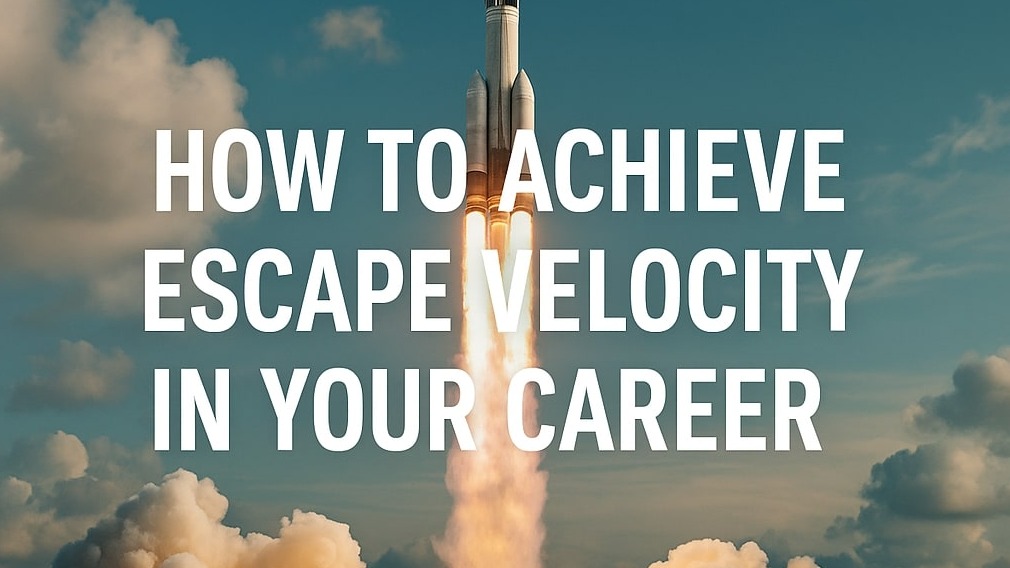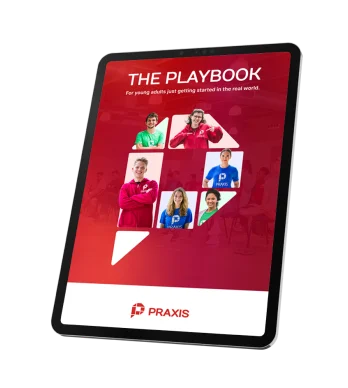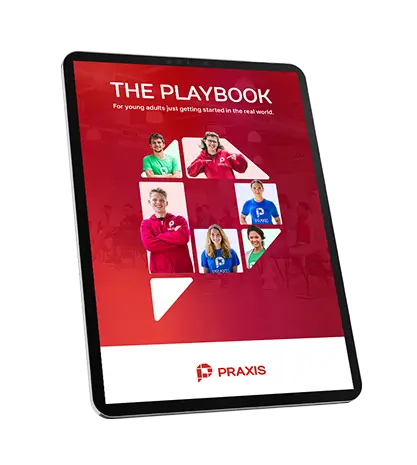- Home >
- Resources >
- Two Critical Mindsets To Develop As a Teen If You Want To Realize Your Potential
This is embarrassing to admit, but as a teen, I used to be threatened by the success of my peers. (It’s probably why I didn’t have many close friends growing up.)
I grew up super competitive. Sports. Academics. Extracurriculars. The middle of five siblings. Everything was a competition.
In the classroom, I vied for teachers’ approval. On the baseball field and basketball court, I vied for the coaches approval. At home, I vied for the attention of my parents.
Everything was a game to be won — and a zero sum game, at that. There could only be one winner. And if anyone was going to win, it would be me.
I didn’t realize it at the time, but this mindset was holding me back. What a shocker, right?
Like I said, it’s embarrassing to admit. Thankfully, I realized the folly of my ways. Sadly, it cost me dearly to learn those lessons (but that’s a story for another day).
It took a lot of work. A lot of journaling, introspection, coaching, and trial and error to diagnose how to address this character flaw. (Admittedly, it was a painful process over years.)
Eventually, I figured out where I went wrong.
The Scarcity Mindset vs. The Abundance Mindset.
First, I’d grown up fostering a scarcity mindset. I believed there was a limited amount of opportunity to go around — and that somehow, other people’s success shrunk the pool of opportunity for me.
That idea was not only wrong, it was harmful.
In reality, when your peers, friends, family, and loved ones succeed, so do you. Similarly, when you succeed, it’s also beneficial to everyone in your sphere of influence, too.
As it’s been said, ““A rising tide lifts all boats.”
Furthermore, there is no “fixed pie” for opportunity. The pie only grows.
Schools teach us to think about success in terms of winners and losers, but in the real world, the people you want to surround yourself play positive sum games — games where everyone is better off as a result of playing.
You’ll see this in the way people conduct themselves in their relationships, in the businesses they run, in their communities. And it’s the result of an abundance mindset.
When you learn to think about the world as an ecosystem filled with endless opportunities to be valuable to other people — rather than a finite pie that’s shrinks in proportion to other people’s success — it will turn your world upside down.
It will make you a better person. It will make you more joyful. It will enrich your life with more meaning. It will make you a better spouse, parent, sibling, friend, colleague. It will also make you better at your job / career / vocation.
Because instead of getting caught up keeping score, you’ll learn to appreciate the game of life more.
This is maybe the most important piece of the puzzle you can figure out on your path to realizing your potential.
And it’s a natural step to the second-most important change: Cultivating a Value-Creation Mindset.
The Value-Creation Mindset
Most people walk through life obsessed with problems. Their life is a series of reactions to problems in their personal, professional, and financial lives.
I saw the world that way for a long time, too. Until I discovered how to flip the script.
Today, instead of looking at problems, I try to see opportunities. Or more specifically, “markets for solutions.”
(Sure, I’m still guilty of being reactive and moping about my own problems from time to time, too. I’m only human.)
Really, that’s all problems are. They’re opportunities to create value for the person with the problem.
Shifting your mindset to view problems as opportunities is a necessary framework for realizing your potential. Because it begs the question — what problems do I care most about solving?
We have limited time on this rock spinning around the sun. So you can’t solve every problem. Especially when you’re just starting out.
You have to be selective about where you devote your time, energy, and resources. So the best thing you can do as a young adult is find a problem you 1) Can Solve and 2) Care to Solve.
You don’t have to change the world. You can start small.
Maybe that means noticing your neighbors’ grass is too tall and offering to mow it for $20. Boom. You’ve solved a problem and participated in a positive sum game. Your neighbor is better off with his fresh-cut yard, and you’re better off because you earned some money.
As you solve small problems, you’ll build confidence, you’ll build skills and experience, and you’ll gain context. Which will naturally lead you to want to solve bigger problems.
Bigger problems tend to stretch you more — which will force you to keep growing, learning, and progressing toward your potential.
…
All of the rest of the advice I could offer you really hinges on those two foundational mindset shifts. If you can develop a mindset of abundance and a value-creation mindset, everything else tends to work itself out.
Yes, it will still be a challenging journey. And yes, you will still make plenty of mistakes. Heavens knows I have.
But it will be worth it. Because you’ll be fully engaged in the service of the highest and best good you can do for the world — and that is aiming to become the very best version of yourself that you can be.
Best of luck on all your endeavors as you aim to realize your potential.
If you enjoyed this piece, you may also find value from my other work. Check it out and let me know what you think!
Share Post
Praxis






